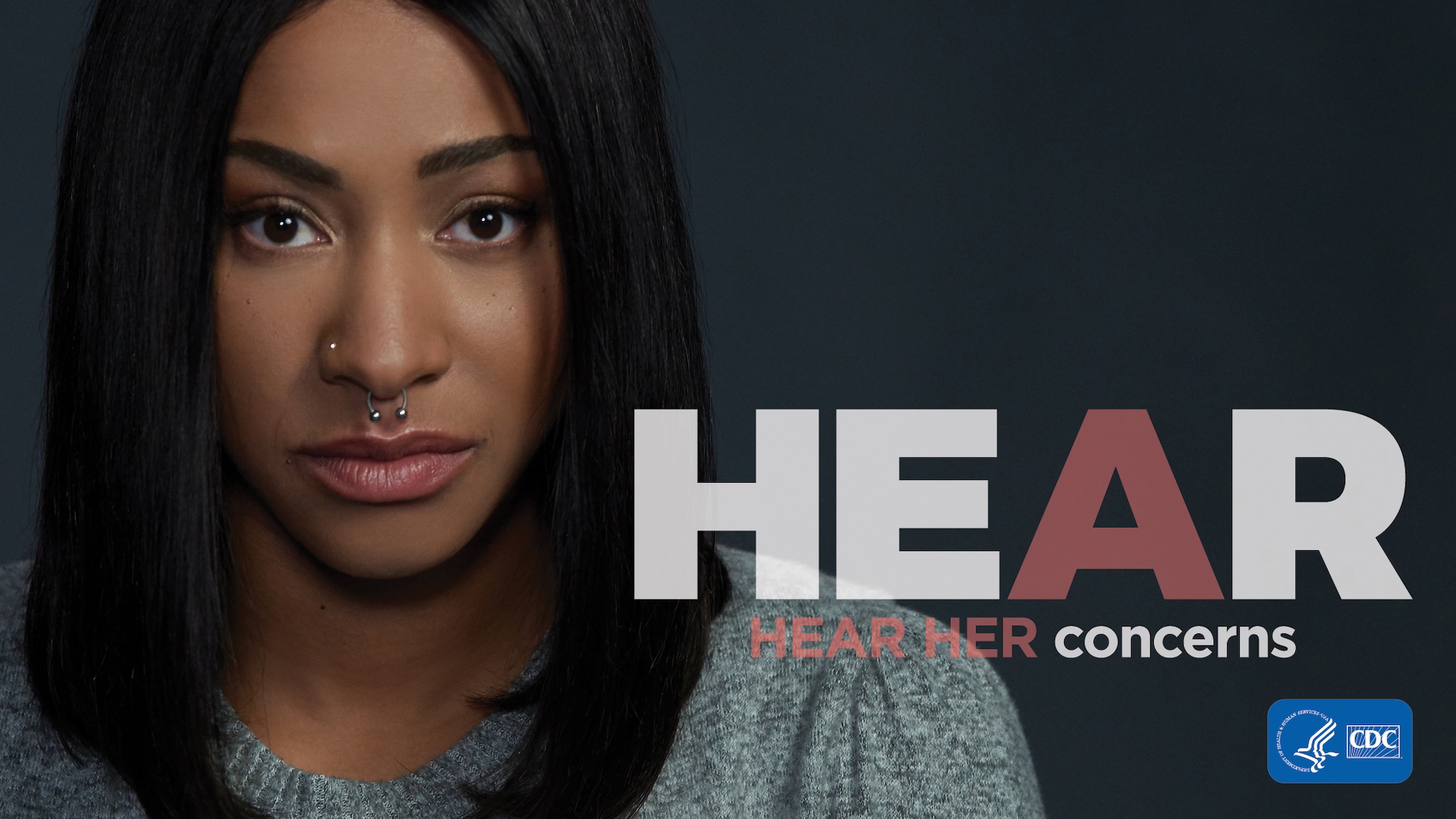At a glance
This prewritten article about Hear Her® is ready for adaptation and use by journalists, bloggers, and other members of the media.

Addressing Health Inequities Among Pregnant Women
By the CDC Division of Reproductive Health Director Wanda Barfield, MD, MPH, RADM USPHS (Ret.)
Valencia, one of the women featured in the Hear Her® campaign, talked about her experience with a pregnancy-related complication. During her first pregnancy, Valencia struggled with headaches and dizziness. When she reported worsening symptoms, she felt like no one took her seriously. "I didn't know who to talk to and wasn't sure how to speak up for myself," she recalled. It was her primary care provider who finally helped her get the care she needed.
Valencia is among the many women who face serious health complications during and after pregnancy. CDC launched the Hear Her campaign to raise awareness of the potentially life-threatening warning signs during and in the year after pregnancy.
Every year, too many women in the United States experience severe pregnancy-related complications and, unfortunately, some die. Tragically, most of these deaths could be prevented. There are considerable racial inequities when it comes to pregnancy-related deaths. American Indian and Alaska Native, Native Hawaiian and Pacific Islander, and Black women are 2 to 3 times more likely to die of pregnancy-related causes than White women.
Several factors contribute to the differences in maternal mortality rates. Structural racism and implicit bias can play a role in the disparity. For example, starting prenatal care late is associated with personal experiences of bias and racism.
Protective factors do not reduce risk equally for all women. For example, more education is generally linked to better health, but Black women with more education still have a higher risk of maternal mortality. Differences in quality of care also play a role. Hospitals that care for a higher percentage of Black women at delivery have poorer outcomes for both Black and White women.
To address racial and ethnic inequities in maternal mortality, CDC supports the work of Maternal Mortality Review Committees (MMRC) around the country. MMRCs receive quality data about the circumstances surrounding a pregnancy-related death, including the documentation of bias, discrimination, and racism. These data are used by committees to make recommendations to prevent future pregnancy-related deaths. Data are also used by CDC to better understand maternal mortality across the nation.
A better understanding of pregnancy-related deaths can lead to identifying the actions that will have the most impact. Standardized quality care can ensure the right care in the right places at the right time for women. High-quality care doesn't end at delivery. It should extend into the postpartum period up to a year after delivery when over half of pregnancy-related deaths occur.
Women like Valencia may feel ignored or dismissed when sharing their concerns, which may make them hesitant to ask questions or speak up. Not fully listening may cause providers to miss warning signs that require immediate care.
Hear Her encourages partners, friends, family, and health care providers to really listen when she tells you something doesn't feel right. Acting quickly could save her life.
For more information, visit cdc.gov/HearHer.
